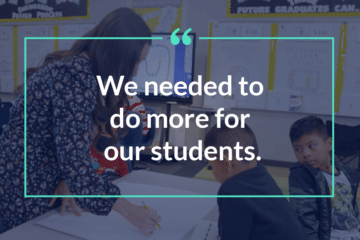In the eighth of NCEE’s series of conversations on critical topics in education and innovation, Anthony Mackay sits down with Bror Saxberg, vice president of Learning Science at the Chan Zuckerberg Initiative, to discuss the intersection of technology, curriculum, assessment, and cognitive science as well as the importance of scale and practicality for implementation.
Saxberg, whose background includes a PhD in electrical engineering and computer science from MIT and an MD from Harvard Medical School, discusses the progress cognitive science has made over the past several decades in understanding how human development and human learning actually work — including how we can unpack and learn from what top-performing experts are doing in school systems.
Saxberg and Mackay also discuss the impact of technology on learning, not to replace teachers but to augment what teachers and students are already doing together. Saxberg explains how the greater learning science community can benefit from the wealth of data technology has now given us about interactions between students, teachers, and education systems as we try to understand what is working—and what is not working—for students with different kinds of backgrounds and contexts.





